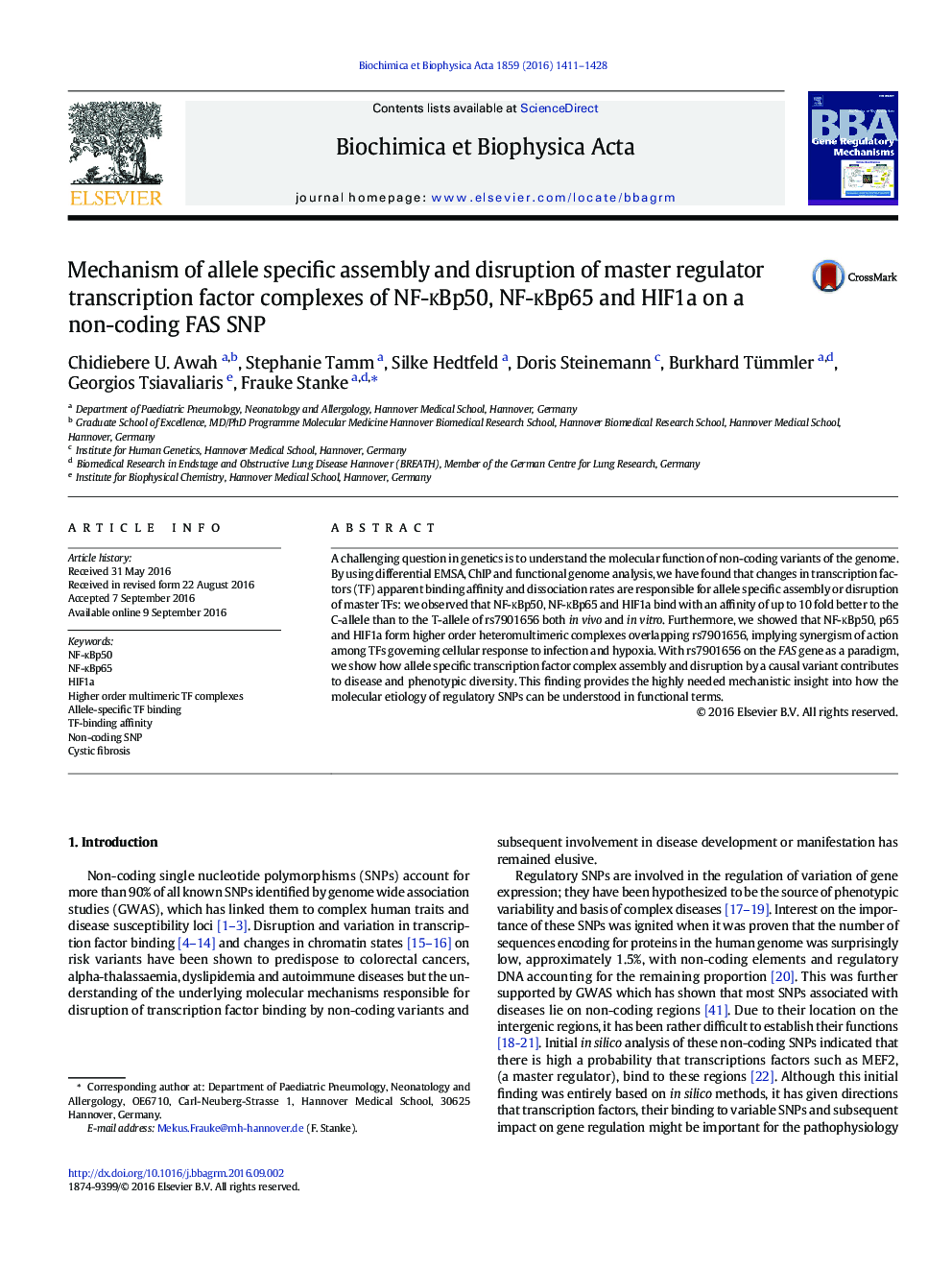| Article ID | Journal | Published Year | Pages | File Type |
|---|---|---|---|---|
| 6481648 | Biochimica et Biophysica Acta (BBA) - Gene Regulatory Mechanisms | 2016 | 18 Pages |
â¢Allele-specific TF complex assembly and disruption on the non-coding variant is based on binding affinity and dissociation rate.â¢NF-KBp50, p65 and HIF1a preferentially bind the C-allele of rs7901656 in FAS.â¢NF-KBp50, p65 and HIF1a form higher order heteromultimeric complexes with synergism in binding their motifs around rs7901656.â¢p65 and HIF1a binding are considerably influenced by flanking sequences around their motifs while NF-KBp50 is not.â¢TF disruption on rs7901656 is associated with cystic fibrosis disease outcome.
A challenging question in genetics is to understand the molecular function of non-coding variants of the genome. By using differential EMSA, ChIP and functional genome analysis, we have found that changes in transcription factors (TF) apparent binding affinity and dissociation rates are responsible for allele specific assembly or disruption of master TFs: we observed that NF-KBp50, NF-KBp65 and HIF1a bind with an affinity of up to 10 fold better to the C-allele than to the T-allele of rs7901656 both in vivo and in vitro. Furthermore, we showed that NF-KBp50, p65 and HIF1a form higher order heteromultimeric complexes overlapping rs7901656, implying synergism of action among TFs governing cellular response to infection and hypoxia. With rs7901656 on the FAS gene as a paradigm, we show how allele specific transcription factor complex assembly and disruption by a causal variant contributes to disease and phenotypic diversity. This finding provides the highly needed mechanistic insight into how the molecular etiology of regulatory SNPs can be understood in functional terms.
Graphical abstractDownload high-res image (137KB)Download full-size image
